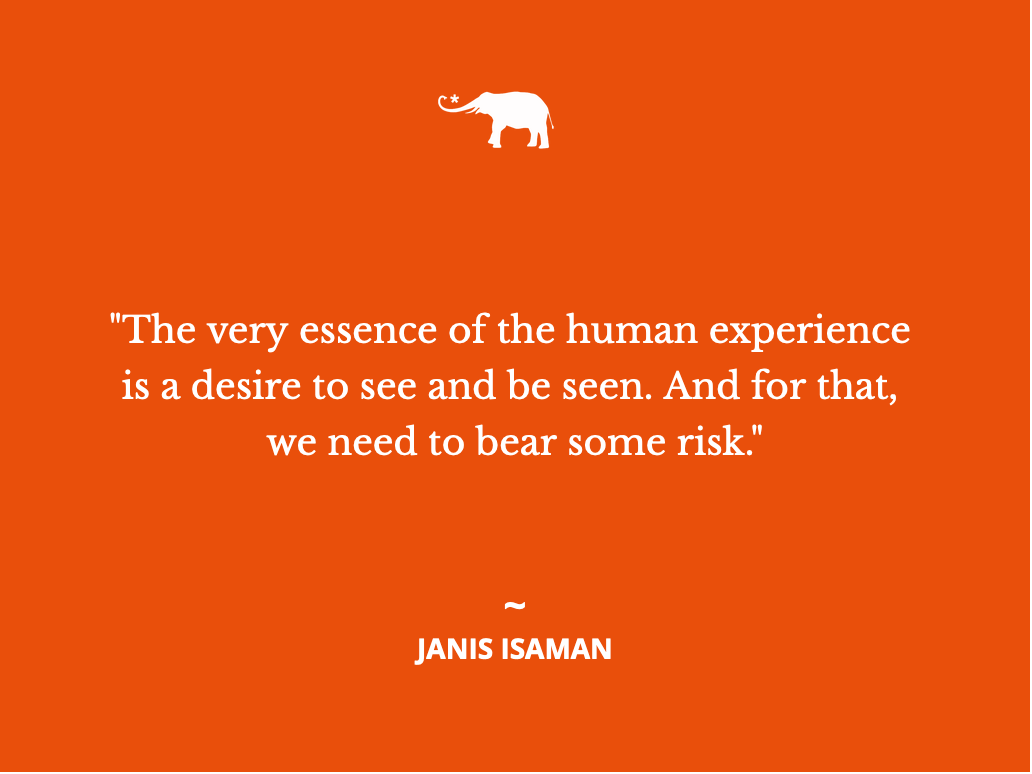“Most men are severely compliment deprived, an under-discussed crisis,” my friend Matt commented on my Facebook thread.
Matt’s words struck me like a sword. I could feel some frustration building in my chest like an internal scratching. With the heat building in my ribcage, my mind swirled; I fought the urge to provide an immediate but defensive response: “That isn’t limited to males.”
I really wanted to say it.
A broad-based failure to consistently exchange genuine, heartfelt compliments with others is a signal of a societal crisis of authenticity, presence, and vulnerability.
The result is something I now refer to as “Compliment Deprivation Disorder.”
A sadness entered the cavity in my chest, and the scratching softened as my rib cage dropped. I recognized that I, too, had Compliment Deprivation Disorder. It is only on the rarest of rare occasions that I have either sent or received the kinds of words that made me or another feel truly heard or seen.
Compliments can instantly change the trajectory of someone else’s life.
Humans not only thrive on compliments, but we also suffer without these portals of connection. Many of us feel a sense of disconnection, depression, or a gap in our wholeness without acknowledgement, particularly from those we know best.
The most common day to find out how others truly feel about us is the day of our funeral. Yet, none of us are alive to hear the words when the eulogy is read aloud.
We must overturn the urge to reserve compliments for certain circumstances or conditions that feel “allowed” because Compliment Deprivation Disorder is literally killing our loved ones.
We all need to start giving compliments. But we often don’t know where to start.
Many of us believe we “suck” at it, as doing so can make us uncomfortable. We can overcome this with a practice I do for myself called “the three components of compliments.”
Component one is being mindful of offering words of affirmation that make us feel slightly personally vulnerable.
If uttering a compliment doesn’t elicit emotion in us, it’s unlikely to elicit emotion in the recipient.
The Facebook thread that inspired Matt’s comments was one where I offered 25 men uniquely individualized words from my heart about how they inspired me, Matt among them.
My emotional reaction to Matt’s comments came with an unexpected realization. Like many females, the compliments I’ve been given, while technically “plentiful,” have typically been limited to one main category: our appearance.
I could intellectually recount the many (many, many) Tinder-based comments referencing my eyes or my smile.
Even as I appreciated the intent, generic admiration of my fashion sense from complete strangers—bearing no correlation to either the value I’ve added to someone’s life or bearing witness to my character—factually generated no positive feelings in my body.
Although I couldn’t assign them a different nomenclature because we have none available in our language, these words made me feel awkward and empty. My responses tended toward the dismissive as I uttered a “thanks!” and tried to change the topic as quickly as humanly possible. No satisfactorily emotionally connecting conversation seemed likely to arise from the topic of my hair.
My lesson as a recipient is that a compliment that bears no emotional risk to the sender takes on a decidedly different tone to the recipient than a statement containing vulnerability.
Vulnerability transcends mere words of positivity.
Compliments are about seeing into someone’s soul. The very essence of the human experience is a desire to see and be seen. And for that, we need to bear some risk. For the “light in me” to see the “light in you,” as we cue at the end of a yoga class with a “namaste,” we need to turn our light on and be willing to expose ourselves.
Compliments reveal our softest underbelly when we give them: someone else is now bearing witness to our heart and emotional centre. We are exposed—our insides are now on the outside.
It’s sometimes scary as hell.
Saying, “You are always self-reflective and vulnerable, and your energy is liquid sunshine,” to a man I respect on that Facebook thread made me feel like I was in junior high—unsure of his forthcoming response—but I did it anyway.
It’s significantly more raw when I share a statement such as: “I noticed your energy seems vibrant, and I find it engaging; I’d love to get to know you” on a dating site versus “great photo!”
And so I challenge myself to do it as part of my personal practice of vulnerability—to overcome Compliment Deficit Disorder.
Compliments are also a portal to presence, component two of the practice.
Giving a compliment requires taking a sensation from our body, pausing to recognize it, and translating it into words. To offer something meaningful, we need to dial into our body, extract sensation, then put words to it. This is no easy task.
Most of us are crazy busy with our lives, speeding from one task to the next.
To tune in, we have to slow down and take a moment to notice what is arising within ourselves. We have to connect to our deepest core emotions and sensations, which requires us to pause in order to be aware of how someone else has moved us, touched us, or impacted us.
When we speak from the beating heart of presence, we speak from our bodies rather than from our brains.
I find myself saying things like:
“You and I have incredible connecting conversations that make my body feel like I’m wrapped in cashmere. It’s cashmere of a quality so high that it’s not made on this Earth but in my heart.”
You can’t make this sh*t up. Literally.
Its real-ness is a result of component three of the practice to overcome Compliment Deficit Disorder: authenticity.
For this purpose, authenticity is what we are willing to think, and vulnerability is what we are willing to share.
This practice is one of noticing and naming character-based qualities about others, even if we may not have the capacity to vocalize our thoughts.
Today, I silently spoke:
“I enjoy these conversations because he is always adding thought-provoking comments. His presence enhances mine.”
Practicing the quality of hosting real, genuine, deeply truthful thoughts about ourselves and others is how we improve this quality.
We cannot speak what we can’t genuinely observe, so the longer and more deeply we know others, the more powerful this practice of authenticity becomes. We expand our capacities of noting nuance, non-judgement, and acceptance.
The cure for Compliment Deprivation Disorder is not a set of ideas; it is a practice. No matter our gender or who we intend to bestow our compliments to, we must repeat them—over and over and over and over.
Matt went on to say:
“Thank you for taking the time to share so many genuine, heartfelt compliments. I plan to pay this forward to some of the men in my life.”
Just the prescription the doctor ordered.









Read 41 comments and reply